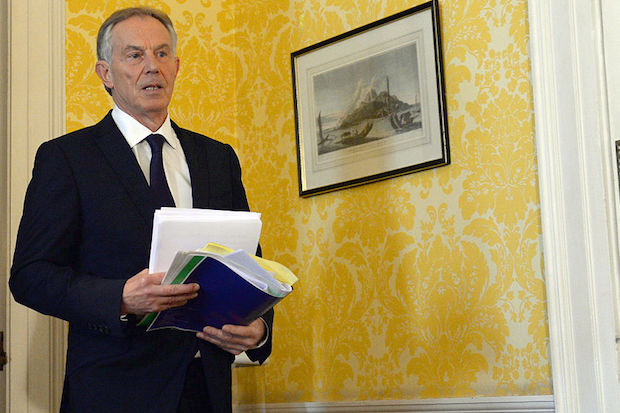Tony Blair appeared emotional, sounded hoarse, and constantly fixated upon his belief that he acted in ‘good faith’ over Iraq when he responded to the Chilcot report this afternoon. The former Prime Minister spoke or took questions for two hours, and started by saying that he accepted ‘full responsibility, without exception and without excuse’. But he also made clear that he disagreed with Chilcot’s findings that the decision to invade Iraq could have been delayed.
The key feature of the long press conference, though, was Blair ruminating constantly on whether he had acted in good faith when taking the decision to go to war. He seems tortured by this question, and more specifically by the fear that people don’t believe that he meant well when he did what he did. It’s almost as though the criticisms about poor planning and lax Whitehall discipline mean very little next to the suggestion that in his heart of hearts, his motives are wrong.
The reason rumination is so bad for a person’s mind is that it is a pattern of thinking the same thing over and over again about something in the hope of reaching a different conclusion, but never quite managing it. It is impossible to testify as to someone’s motives, and so Blair will never get the conclusion he wants, which is to know that people think that he did the right thing, even if his basis for doing so might have been proved wrong in time. ‘There will not be a day of my life when I do not relive and rethink what happened,’ the former Prime Minister told the press conference. Even if he was trying to wring out every last question from journalists in the hope that he doesn’t have to discuss what happened ever again, it was clear from the way he constantly returned to the question of his motives that this prediction about his own rumination will be proved right.







Comments